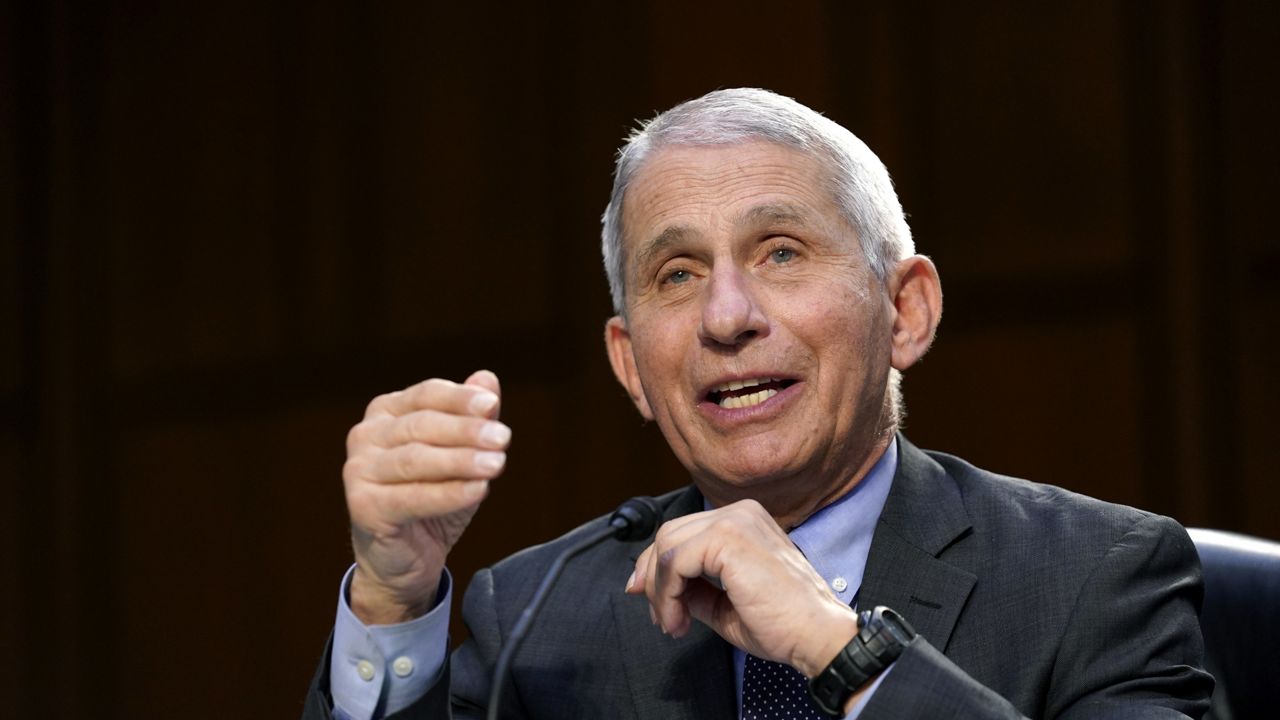U.S. health agencies are still evaluating data to determine whether a fourth COVID-19 booster shot will be needed to bolster immunity from the virus in the future — and if so, for what populations, government officials said Monday.
“The honest answer is that we do not know at this point, but we are collecting data that hopefully will inform us about that,” Dr. Anthony Fauci, the nation’s leading infectious disease expert and head of the National Institute of Allergy and Infectious Diseases (NIAID), said Monday when asked if Americans should expect to get a fourth shot against COVID in the next six months to a year.
The Food and Drug Administration on Friday authorized a third shot of Pfizer and Moderna’s COVID-19 vaccines for all adults six months after their last dose; the recommended wait for those who got a single-dose Johnson & Johnson vaccine was already just two months after their first shot.
Individuals can mix-and-match their third booster shot — or second, if they initiatlly received J&J — between any company.
The FDA and subsequent CDC approval of the booster vaccines came, in part, to make it easier for individuals to decipher whether or not they were eligible for a third shot. Until last week, Americans faced a confusing list of who was eligible for a booster that varied by age, their health and which kind of vaccine they got first.
But vaccine protection against infection can wane with time, and White House officials on Monday cited a number of nationwide and international studies supporting the need for a third vaccine.
One study, which evaluated the vaccine effectiveness of the shots given out to veterans by the Veterans Health Administration, found that overall vaccine effectiveness against infection decreased from 87.9% to 48.1% between February - October of this year.
The most significant decrease in protection came from the Johnson & Johnson vaccine. Experts wrote the findings demonstrated the need for “continued efforts to increase vaccination, booster campaigns, and multiple, additional layers of protection against infection.”
Fauci on Monday pointed to new data from a joint study of 10,000 patients between the United States, Brazil and South Africa, which compared vaccine efficacy between a group of boostered individuals and unboostered ones.
The data pointed to a “high relative efficacy in the boosted group” compared to those who did not receive a booster shot, with a 95% protection rate against symptomatic COVID-19.
Dr. Fauci on Monday said he thinks there is a “reasonable chance that the durability of protection following the third dose will be longer than the durability of protection” following a single-dose J&J vaccine or a two-dose Moderna or Pfizer regimen.
“If that's the case, then we may not need to get boosted every six months or so,” he added. “But if [vaccine effectiveness] does wane, which I hope it doesn't, then we will address it. In any case, we will find out that data, we will make it public and we will act accordingly.”
While the vaccines spur immune memory that protects against severe disease, protection against infection depends on levels of virus-fighting antibodies that wane with time. No one yet knows how long antibody levels will stay high after a booster.
But even a temporary boost in protection against infection may help, especially as people start to gather with family around the winter holidays.



